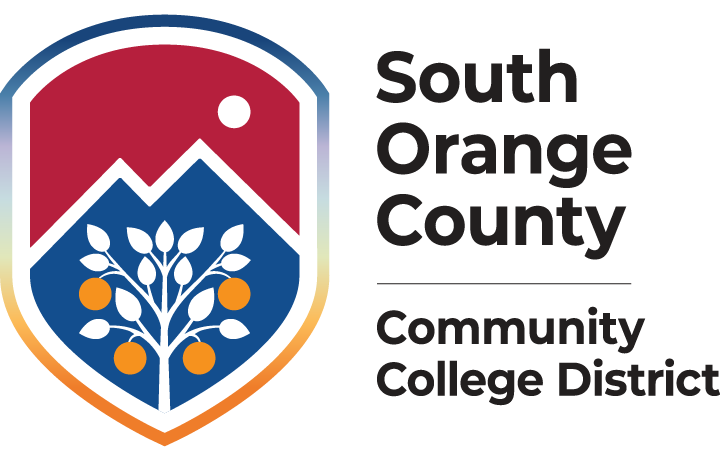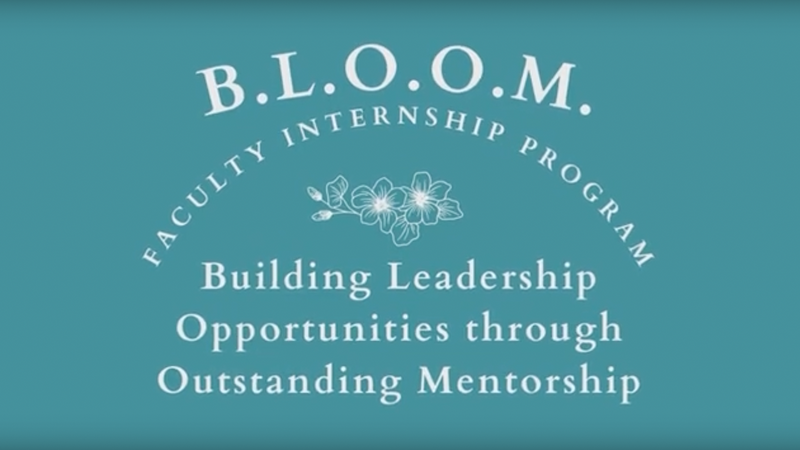Program Eligibility
Interested mentors must meet these qualifications to be considered:
- Mentors must be full-time, tenured faculty at a SOCCCD college by the start of the semester during which they will serve as a mentor.
- Mentors must be positive role models for their teaching interns. Thus, faculty with outstanding teaching reputations – among students, colleagues, and supervisors – will be given priority in the selection process.
- Mentors must be open to a collaborative learning process: offering ongoing support to their interns and being receptive to feedback from their interns.
- Mentors must be committed to participating in ongoing professional development.
- Mentors must be engaged in professional work outside of the classroom (i.e., through service on department-, campus-, and/or district-wide committees; professional leadership experiences; etc.).
- Mentors must also have commitment to equity and diversity. All mentors must have demonstrated sensitivity to and understanding of the diverse academic, socioeconomic, cultural, disability, gender, gender identity, sexual orientation, and ethnic backgrounds of community college students, faculty, and staff. Mentors must be able to demonstrate how these factors relate to the need for equity minded practices within an educational environment.
Responsibilities
Definition:
A mentor in the SOCCCD Faculty Internship Program will receive a stipend of $1,200 to support, guide, and promote the professional growth of their intern. In the classroom, mentors will model best practices for developing and delivering curriculum, engaging students, establishing inclusive environments, and ensuring equitable outcomes. They will also help interns plan and process their teaching experiences. Outside of the classroom, mentors will offer insight into faculty service, professional development and training opportunities, and application and interview processes. Mentors will facilitate connections between their interns and the department and campus community to create a sense of welcome and belonging. The following responsibilities further describe the position:
- Be a positive role model, resource, and guide to the intern.
- Participate in a brief, pre-semester orientation.
- Communicate respectfully and openly with the intern for a minimum of 30 minutes per week using modes agreed upon by both parties: in person, phone, Zoom, etc.
- Welcome the intern into one of their course sections throughout the duration of the semester. As mentors and interns agree, there may be flexibility for interns to attend multiple sections.
- Include the intern as an observer in the course Canvas shell and discuss how they incorporate technology in their teaching.
- Share observations about their experiences with teaching in distinct modalities: in person, asynchronous, hybrid, online synchronous, etc.com
- Offer insight into developing inclusive classroom environments in which all participants’ ideas, cultures, and identities are valued and respected.
- Help the intern prepare to teach a minimum of two 20-minute lessons for their students. Debrief about the lessons with the intern.
- Introduce the intern to student assessment techniques, including grading methods.
- Strategize about classroom engagement and management techniques with the intern, including best practices for addressing student conduct issues (i.e., student incident reporting, de-escalation techniques, academic honesty promotion, etc.). Invite the intern to attend and debrief about a college-, division-, or department-wide meeting.
- Connect the intern to colleagues and to college- and district-wide opportunities.
- Engage the intern in discussions about inclusion and equity in relation to community college students, faculty, staff, and administrators.
- Help the intern identify the roles that various campus offices and individuals play in student and employee success.
- Heighten a sense of belonging to the community college faculty culture through regular and open dialogue with the intern about these subjects: prioritizing professional responsibilities, avoiding burn out, managing time and work/life commitments, and locating opportunities for professional growth.
- Discuss prospects for career development with the intern: review application and interview strategies.
Frequently Asked Questions (FAQs)
Thank you for your interest in the B.L.O.O.M. Program! We encourage prospective mentors to review the below FAQs for added insight into our Program and practices:
Prospective B.L.O.O.M. mentors must possess all of these qualifications:
- Mentors must be full-time, tenured faculty at a SOCCCD college by the start of the semester during which they will serve as a mentor.
- Mentors must be positive role models for their teaching interns. Thus, faculty with outstanding teaching reputations – among students, colleagues, and supervisors – will be given priority in the selection process.
- All B.L.O.O.M. mentors must demonstrate a commitment to equity and diversity. Mentors must have demonstrated sensitivity to and understanding of the diverse academic, socioeconomic, cultural, disability, gender, gender identity, sexual orientation, and ethnic backgrounds of community college students, faculty, and staff. Also, mentors must be able to demonstrate how these factors relate to the need for equity minded practices within an educational environment.
Interested parties must complete the Mentor Interest Form by the posted deadline, which is typically in mid-September. A select number of candidates will be invited to serve as mentors. Selection will be based on these factors:
- Connections to disciplines of special interest;
- Demonstrated commitment to equity and diversity. Mentors must have demonstrated sensitivity to and understanding of the diverse academic, socioeconomic, cultural, disability, gender, gender identity, sexual orientation, and ethnic backgrounds of community college students, faculty, and staff. Also, mentors must be able to demonstrate how these factors relate to the need for equity minded practices within an educational environment; and a
- Positive reputation among students, colleagues, and supervisors.
For an overview of B.L.O.O.M. mentor responsibilities, please see the "Responsibilities" section of the B.L.O.O.M. Program Mentor Information webpage above.


